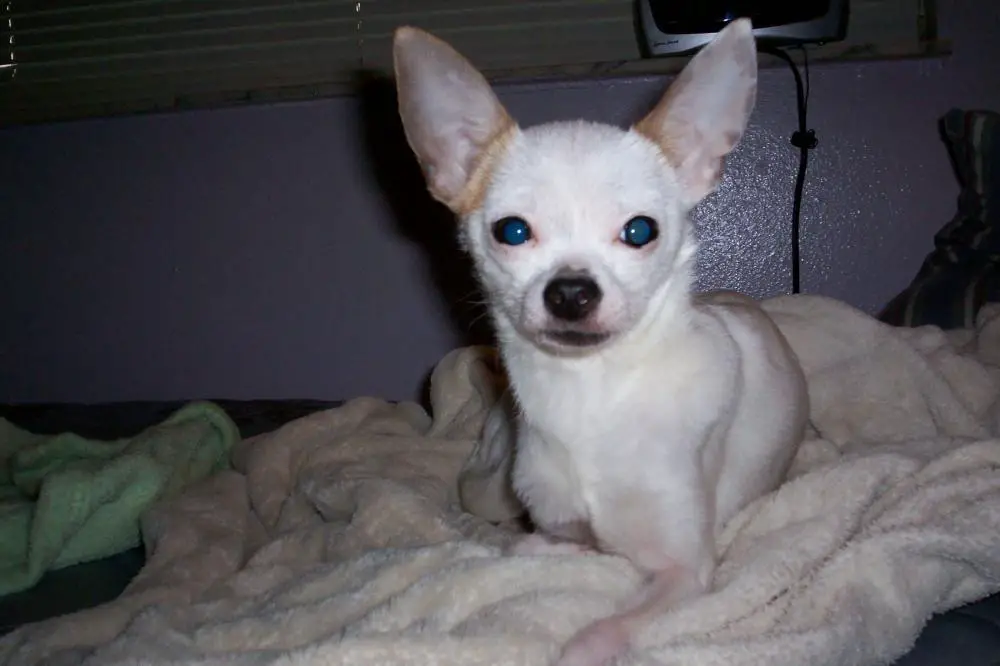Green mucus coming from the nose can be a sign of upper respiratory infection, also known as kennel cough. It is important that you take your pet to the vet, as only they will be able to completely diagnose and treat the infection completely, using antibiotics and recommending a diet that will aid with recovery.
Upper respiratory tract (URT) infection in dogs involves all or part of the upper airways, which include the bronchi, trachea, throat and nasal cavities. Infections of these airways can become very serious, and can even be fatal.
Infections of the upper respiratory tract are common in domestic dogs and usually are caused by a combination of primary and secondary pathogens, including viruses, bacteria and/or mycoplasma. Bordetella bronchiseptica is the most common primary bacterial pathogen; it causes infectious canine tracheobronchitis, commonly called "kennel cough".
Among viral causes of URT infection, the canine influenza virus and the canine distemper virus are seen most frequently. Less often, canine URT infections are associated with nasal mites (Pneumonyssoides caninum) or lung flukes (Paragonimus kellicotti). Most of these infectious pathogens are highly contagious and spread rapidly between dogs, especially in multi-pet households and high-density areas such as pet stores, animal shelters, grooming facilities, boarding kennels, dog parks and dog shows, especially when those areas are not kept clean.
Most canine URT infections are preventable with proper use of vaccines and appropriate sanitation and quarantine measures. Companion dogs with strong immune systems that are supported by good nutrition, a healthy lifestyle and proper environmental hygiene can usually overcome the adverse effects of URT ailments without prolonged treatment. Because these infections are perpetuated by the shedding of pathogens in respiratory secretions, it is important to practice cleanliness and good hygiene in areas where dogs congregate in close quarters. Dogs with URT infections should be isolated from other dogs until their infection has resolved.
Upper respiratory tract (URT) infection in dogs involves all or part of the upper airways, which include the bronchi, trachea, throat and nasal cavities. Infections of these airways can become very serious, and can even be fatal.
Infections of the upper respiratory tract are common in domestic dogs and usually are caused by a combination of primary and secondary pathogens, including viruses, bacteria and/or mycoplasma. Bordetella bronchiseptica is the most common primary bacterial pathogen; it causes infectious canine tracheobronchitis, commonly called "kennel cough".
Among viral causes of URT infection, the canine influenza virus and the canine distemper virus are seen most frequently. Less often, canine URT infections are associated with nasal mites (Pneumonyssoides caninum) or lung flukes (Paragonimus kellicotti). Most of these infectious pathogens are highly contagious and spread rapidly between dogs, especially in multi-pet households and high-density areas such as pet stores, animal shelters, grooming facilities, boarding kennels, dog parks and dog shows, especially when those areas are not kept clean.
Most canine URT infections are preventable with proper use of vaccines and appropriate sanitation and quarantine measures. Companion dogs with strong immune systems that are supported by good nutrition, a healthy lifestyle and proper environmental hygiene can usually overcome the adverse effects of URT ailments without prolonged treatment. Because these infections are perpetuated by the shedding of pathogens in respiratory secretions, it is important to practice cleanliness and good hygiene in areas where dogs congregate in close quarters. Dogs with URT infections should be isolated from other dogs until their infection has resolved.
